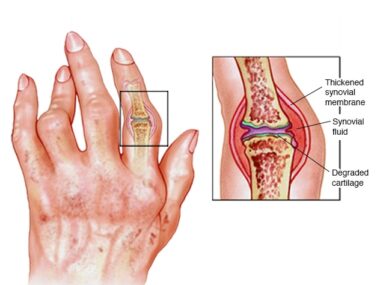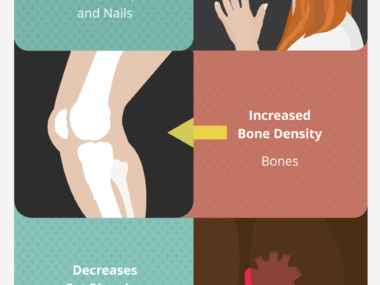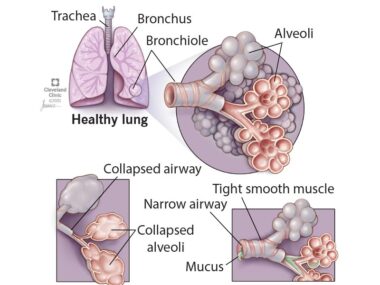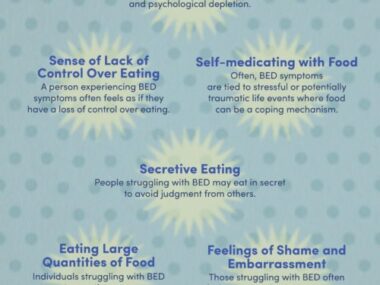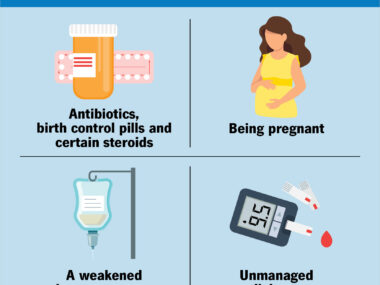Health: The Ultimate Guide to a Healthy Lifestyle
Welcome to the ultimate guide to health! In this article, we will delve into everything you need to know about maintaining a healthy lifestyle and making informed choices for your wellbeing. Whether you’re looking for tips on nutrition, exercise, mental health, or overall wellness, you’ve come to the right place.

We understand the importance of staying healthy in today’s fast-paced world. With our expert advice and evidence-based information, we aim to empower you to take control of your health and make positive changes that will enhance your quality of life.
The Importance of Maintaining Good Health
Good health is the foundation of a fulfilling and happy life. When we are healthy, we have more energy, better focus, and are better equipped to handle the challenges that come our way. It is essential to prioritize our health and take proactive steps to maintain it.
To achieve good health, it’s important to understand the factors that can impact our overall wellbeing. This includes both physical and mental health. By addressing common health issues and their causes, we can make informed choices that promote wellness.
Common Health Issues and Their Causes
There are various health issues that individuals may face throughout their lives. These can range from minor ailments to chronic conditions. Understanding the causes behind these health issues can help us prevent them and take appropriate measures to manage them effectively.
Some common health issues include cardiovascular diseases, diabetes, obesity, respiratory disorders, and mental health conditions. These can be caused by factors such as poor diet, lack of physical activity, stress, genetics, and environmental factors. By identifying the root causes, we can make changes in our lifestyle to reduce the risk of these issues.
Tips for Improving Physical Health
Physical health plays a crucial role in our overall wellbeing. By taking care of our bodies, we can prevent illnesses, boost our immune system, and improve our quality of life. Here are some tips to help you improve your physical health:
- Maintain a balanced diet: Include a variety of fruits, vegetables, whole grains, lean proteins, and healthy fats in your meals. Avoid processed foods and excessive sugar intake.
- Stay active: Engage in regular physical activity such as walking, jogging, swimming, or cycling. Aim for at least 150 minutes of moderate-intensity exercise per week.
- Get enough sleep: Ensure you have a consistent sleep schedule and aim for 7-9 hours of sleep each night. Quality sleep is essential for optimal physical health.
- Stay hydrated: Drink an adequate amount of water throughout the day to keep your body hydrated and maintain proper bodily functions.
- Practice good hygiene: Wash your hands regularly, maintain oral hygiene, and take necessary precautions to prevent the spread of infectious diseases.
By incorporating these tips into your daily routine, you can improve your physical health and reduce the risk of various health issues.
Tips for Improving Mental Health
In addition to physical health, mental health is equally important for overall wellbeing. Our mental state affects how we think, feel, and act, and can significantly impact our daily lives. Here are some tips to help you improve your mental health:
- Practice self-care: Make time for activities that you enjoy and that promote relaxation and stress relief. This could include hobbies, meditation, yoga, or spending time in nature.
- Connect with others: Maintain healthy relationships and build a support system of friends and family. Social connections are essential for mental health.
- Manage stress: Identify stressors in your life and find healthy coping mechanisms to manage them. This could include deep breathing exercises, journaling, or seeking support from a therapist.
- Prioritize sleep: Ensure you get enough sleep and establish a bedtime routine that promotes relaxation and restful sleep.
- Practice mindfulness: Stay present in the moment and cultivate gratitude. Mindfulness techniques can help reduce anxiety and improve overall mental wellbeing.
Taking care of your mental health is just as important as taking care of your physical health. By implementing these strategies, you can enhance your overall wellbeing and enjoy a more balanced and fulfilling life.
The Role of Nutrition in Maintaining Good Health
Nutrition plays a vital role in maintaining good health and preventing various diseases. A well-balanced diet provides essential nutrients that support bodily functions and promote overall wellbeing. Here are some key aspects of nutrition to consider:
- Macronutrients: These include carbohydrates, proteins, and fats. It’s important to consume these in the right proportions to meet your body’s needs. Focus on whole, unprocessed foods that are rich in nutrients.
- Micronutrients: These are essential vitamins and minerals that our bodies need in smaller quantities. Ensure you have a varied diet that includes a wide range of fruits, vegetables, and whole grains.
- Hydration: Water is essential for maintaining proper bodily functions. Aim to drink at least 8 glasses of water per day, and adjust your intake based on your activity level and climate.
- Portion control: Pay attention to portion sizes to avoid overeating. Listen to your body’s hunger and fullness cues and avoid mindless eating.
- Dietary restrictions: If you have any specific dietary restrictions or allergies, work with a healthcare professional or a registered dietitian to ensure you meet your nutritional needs.
By making informed choices about the food you consume, you can nourish your body and promote good health.
The Benefits of Regular Exercise
Regular exercise is a cornerstone of a healthy lifestyle. It offers numerous benefits for both physical and mental health. Here are some key benefits of incorporating regular exercise into your routine:
- Weight management: Exercise helps maintain a healthy weight by burning calories and increasing metabolism.
- Stronger muscles and bones: Physical activity strengthens muscles and bones, reducing the risk of conditions such as osteoporosis.
- Improved cardiovascular health: Exercise improves heart health, lowers blood pressure, and reduces the risk of cardiovascular diseases.
- Enhanced mood and mental wellbeing: Physical activity releases endorphins, which are natural mood boosters. Regular exercise can reduce symptoms of depression and anxiety.
- Increased energy levels: Engaging in regular physical activity boosts energy levels and reduces feelings of fatigue.
- Better sleep quality: Exercise promotes better sleep, helping you feel more rested and rejuvenated.
- Increased longevity: Studies have shown that regular exercise can increase lifespan and reduce the risk of chronic diseases.
By finding activities you enjoy and incorporating them into your routine, you can reap the many benefits of regular exercise.
How to Create a Healthy Lifestyle
Creating a healthy lifestyle involves making conscious choices that prioritize your wellbeing. It’s about adopting sustainable habits that promote physical and mental health. Here are some tips to help you create a healthy lifestyle:
- Set realistic goals: Start by setting achievable goals that align with your values and priorities. Break them down into smaller steps to make them more manageable.
- Create a routine: Establish a daily routine that includes time for exercise, nutritious meals, and self-care activities.
- Practice time management: Prioritize your time and allocate it wisely. Set boundaries to ensure you have time for activities that promote your health and wellbeing.
- Seek support: Surround yourself with like-minded individuals who support your goals and can provide guidance and accountability.
- Stay motivated: Find sources of inspiration and motivation to sustain your healthy habits. This could include reading books, listening to podcasts, or following social media accounts that promote wellness.
Remember, creating a healthy lifestyle is a journey, and it’s important to be patient and kind to yourself along the way.
Natural Remedies for Common Health Problems
While medical intervention is crucial for certain health issues, there are natural remedies that can complement conventional treatments or help manage minor ailments. Here are some natural remedies for common health problems:
- Herbal remedies: Certain herbs and plants have medicinal properties that can help alleviate symptoms of various health conditions. Examples include chamomile for relaxation, ginger for digestion, and lavender for stress relief.
- Essential oils: Aromatherapy using essential oils can have a calming effect on the mind and body. Lavender, peppermint, and eucalyptus are commonly used for their therapeutic properties.
- Home remedies: For minor ailments like sore throat, cold, or headaches, home remedies such as warm saltwater gargles, steam inhalation, or herbal teas can provide relief.
- Mind-body practices: Practices like yoga, tai chi, and meditation can help reduce stress, improve mental health, and promote overall wellbeing.
It’s important to note that natural remedies may not be suitable for everyone, and it’s always advisable to consult with a healthcare professional before trying any new treatments.
The Importance of Regular Check-ups and Screenings
Regular check-ups and screenings are essential for maintaining good health and detecting potential issues early on. They allow healthcare professionals to identify any underlying problems and provide appropriate interventions. Here are some key reasons why regular check-ups are important:

- Early detection: Regular screenings can detect early signs of diseases such as cancer, diabetes, and cardiovascular conditions, increasing the chances of successful treatment.
- Prevention: Healthcare professionals can provide preventive measures such as vaccinations, screenings, and lifestyle recommendations to reduce the risk of certain diseases.
- Monitoring existing conditions: Regular check-ups are crucial for individuals with chronic conditions to monitor their health and ensure appropriate management.
- Health education: Check-ups provide an opportunity to discuss any concerns, receive guidance on healthy lifestyle choices, and stay informed about the latest developments in healthcare.
By prioritizing regular check-ups and screenings, you can actively participate in maintaining your health and catch any potential issues before they become more serious.
Conclusion: Taking Charge of Your Health
In conclusion, maintaining good health is a lifelong commitment that requires continuous effort and conscious choices. By incorporating tips for improving physical and mental health, understanding the role of nutrition and exercise, creating a healthy lifestyle, exploring natural remedies, and prioritizing regular check-ups, you can take charge of your health and enhance your overall wellbeing.
Remember, your health is your most valuable asset. Invest in it wisely, and enjoy the benefits of a healthier, happier life. So, whether you’re a health enthusiast, someone looking to make healthier choices, or simply curious about the latest trends in the wellness industry, make a commitment to your wellbeing and let us guide you on your journey to a healthier, happier life.

